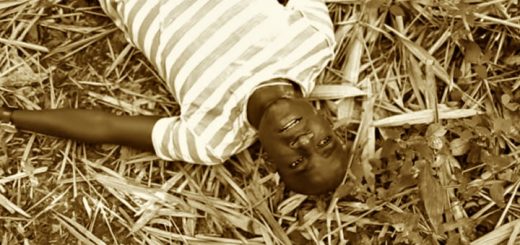Faith in a time of pandemic
Article by Anthony Egan SJ* published by the Jesuit Institute South Africa, March 20th, 2020
It’s happened before. Plagues and viruses have been with us since the dawn of humanity. So too has the sense of panic and powerlessness epidemics evoke. The challenge to us all, particularly Christians, is how we respond to it.
In the mid-14th Century, the bubonic plague spread from Asia into Europe. An estimated 40% of Europeans died over the course of a few years. One hundred years ago, the global Spanish Influenza killed roughly 50 million people. These are two of many examples in history.
But, let me add: history recounts how our species has learnt to cope with and survive epidemics and pandemics. Medical science has advanced since the 14th and early 20th Centuries. Many formerly fatal illnesses are now controllable or curable. All that’s needed is time, research – and human willingness to comply with basic measures (notably hygiene and avoidance of contamination) to prevent the spread of diseases.
Religious communities have an important role in this, for good or ill.
The Church’s response to the plague made a terrible situation worse: ascribing it to divine vengeance on human sinfulness, demons or minorities. Despite a wave of often crazy penitential movements, the death toll mounted till it had run its course.
State power and somewhat better medical knowledge possibly mitigated a greater catastrophe in the 20th Century. Religious communities’ rhetoric was more muted – though some leaders still blamed it on sin. Many were forced to curtail services. Some church leaders (and in some places civil communities) resisted such restrictions; others accepted them.
Where there was resistance, more people died. Where they complied, the death rate was lower.
The lesson for us today is, first and foremost, that we must comply with public health authorities. Since at least the 1950s, Catholic medical ethics has declared: defer to medical scientific expertise. Whatever the limits of their present knowledge, they know better than non-medics. We must also put aside assumptions that religious people have some ‘divine immunity’. Such thinking is dangerous, even deadly. False piety and irresponsible ‘heroism’ is thus a vice, not a virtue. Much as we may hate it, and need to find other ways to worship privately, we can survive without Mass for a few months. (If in doubt, ask the people of Amazonia). And remember: if you can’t attend Mass, though you want to, it is not a sin.
We must also abandon bad theology that sees sickness as divine judgment or punishment. COVID-19 is a disease emerging from nature; it is neither ‘magic’ nor a sign of God’s anger. Ask yourself: what kind of monstrous God do we imagine if we ascribe COVID-19 to divine vengeance? Certainly not one worthy of my love!
In these tough times, we must focus on a loving God who cares for humanity and our well-being. A God who works through the many health care professionals and medical researchers, who even now, are working to end the COVID-19 outbreak. We should spend our enforced Sundays at home praying for them.
* Fr Anthony Egan SJ has taught, full-time or part-time, at St Augustine College of South Africa, St John Vianney Seminary, Fordham University (on sabbatical) and the University of the Witwatersrand, where he currently teaches at the Steve Biko Centre for Bioethics. The author/co-author of a number of books, book chapters, academic and popular articles, he is a correspondent for America magazine, a contributor to Worldwide and writes for Spotlight. He is also a commentator on local and international radio and television. He is an Honorary Fellow of the Helen Suzman Foundation. Extramural interests include Science Fiction, Theatre, Art and creative writing, including poetry.



